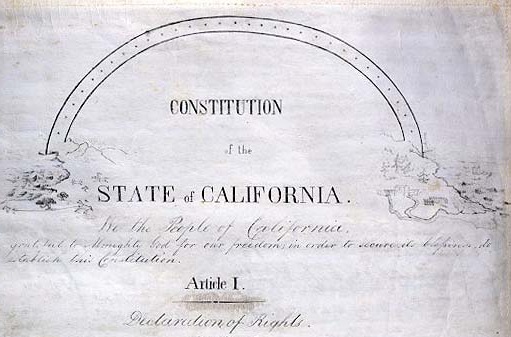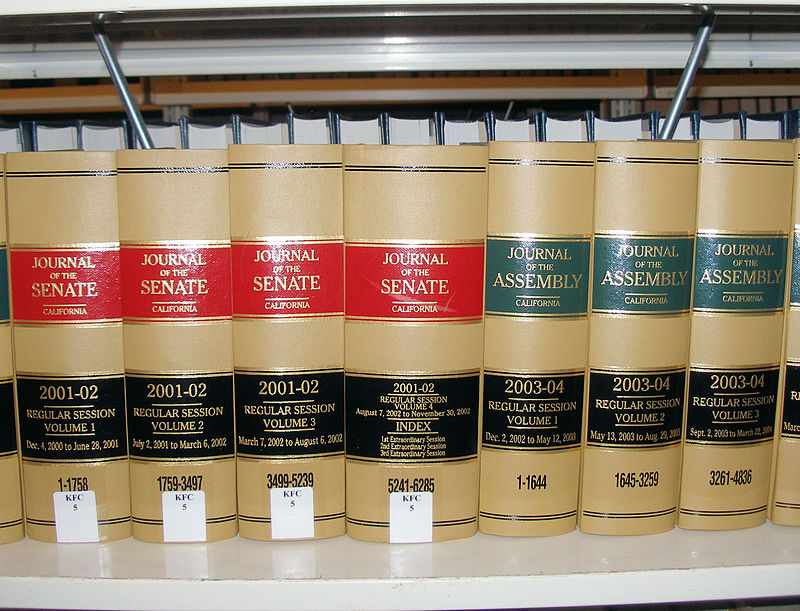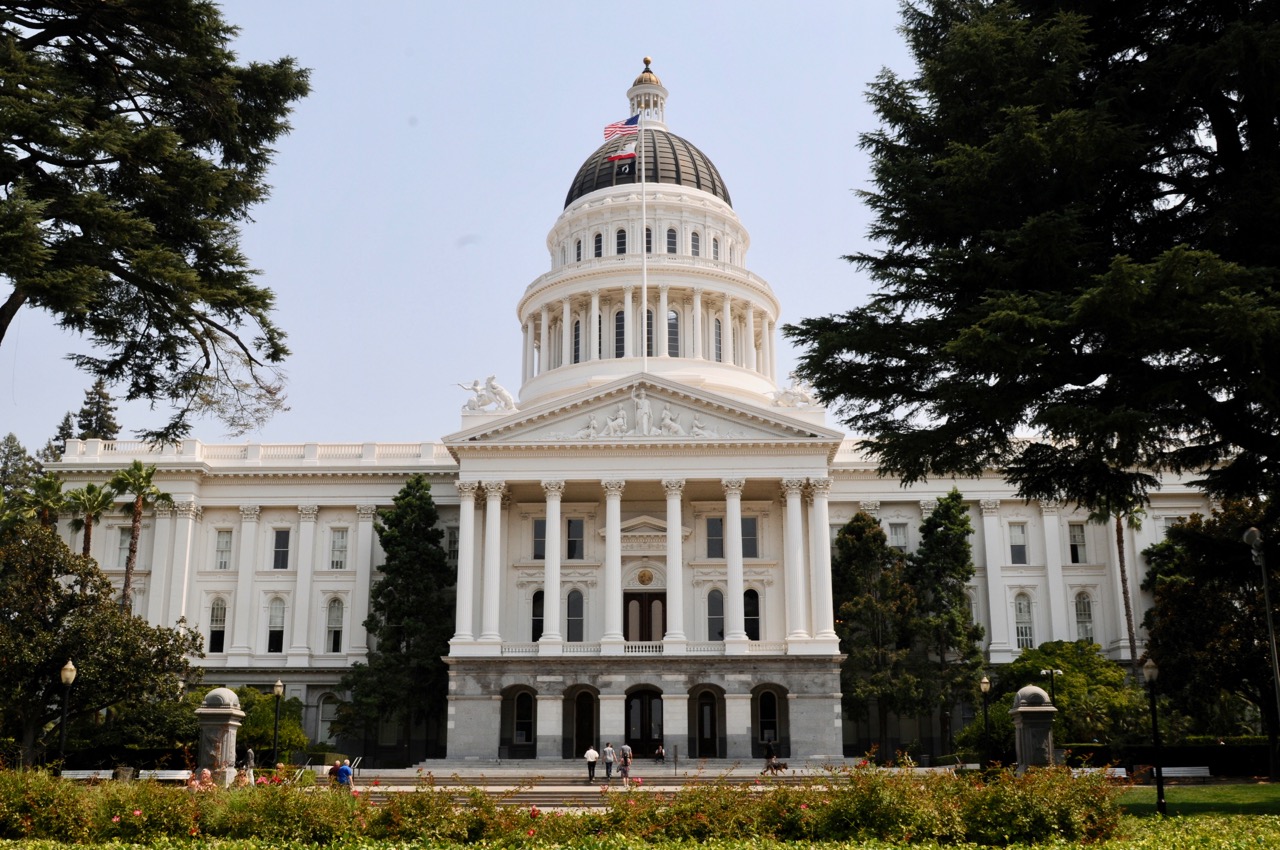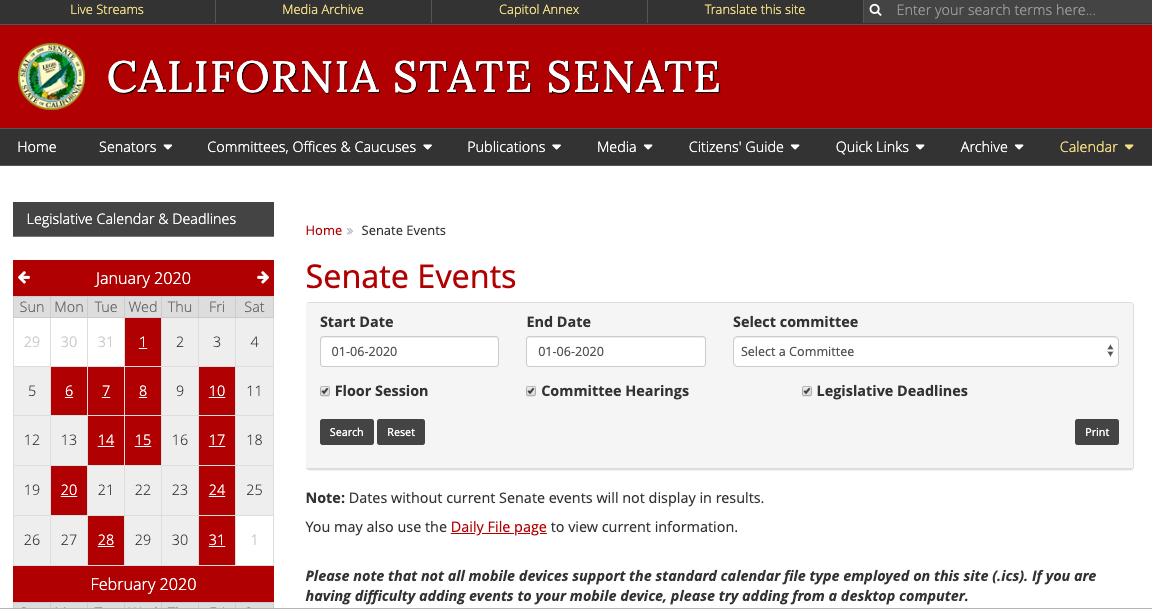
California Constitution. (Photo: www.sos.ca.gov)
California Legislature’s Organization and Structure
Legislators are regulated in their official conduct
By Chris Micheli, November 20, 2019 7:41 am
The organization and structure of the California Legislature is established by the California Constitution, specifically in Article IV. Half a dozen sections of Article 4 relate to the organization and structure of the Legislature.
Section 1 provides specifically that “The legislative power of this State is vested in the California Legislature which consists of the Senate and Assembly….”
Section 2 provides for the composition of the Legislature, in which the Senate has a membership of 40 Senators elected for 4-year terms, 20 to begin every 2 years, while the Assembly has a membership of 80 members elected for 2-year terms. These terms commence on the first Monday in December next following her or his election. There is also a lifetime term limit of serving no more than 12 years in the Senate, the Assembly, or both, in any combination of terms.
Section 2 also specifies the qualifications to serve in the Legislature: the person is an elector and has been a resident of the legislative district for one year, and a citizen of the United States and a resident of California for 3 years, immediately preceding the election, and service of the full term of office to which the person is seeking to be elected would not exceed the maximum years of service permitted (i.e., 12 years). In addition, when a vacancy occurs in the Legislature, the Governor immediately calls an election to fill the vacancy.
Section 3 deals with the convening of the Legislature. The body convenes in regular session at noon on the first Monday in December of each even-numbered year and each house immediately organizes. Each session of the Legislature adjourns sine die by operation of the Constitution at midnight on November 30 of the following even-numbered year.
Section 3 also provides for special sessions in that, on extraordinary occasions, the Governor by proclamation may cause the Legislature to assemble in special session. When so assembled, it has power to legislate only on subjects specified in the proclamation, but may provide for expenses and other matters incidental to the session.
Section 7 specifies how the Legislature will conduct its official duties, such as each house chooses its officers and adopts rules for its proceedings, and each house keeps and publishes a journal of its proceedings. Generally, the proceedings of each house and the committees are open and public. And, the Legislature must cause audiovisual recordings to be made of all proceedings in their entirety, making those recordings public through the Internet within 24 hours after the proceedings have been recessed or adjourned for the day.
Section 7 also permits closed sessions to be held for specified purposes. Moreover, a caucus of the Members of the Senate, the Members of the Assembly, or the Members of both houses, which is composed of the members of the same political party, may meet in closed session. And, neither house without the consent of the other can recess for more than 10 days or to any other place.
Section 11 permits the Legislature to specify how it will conduct its business by specifying that the Legislature or either house may by resolution provide for the selection of committees necessary for the conduct of its business, including committees to ascertain facts and make recommendations to the Legislature on a subject within the scope of legislative control.
Section 22 sets forth the right of the people to hold their legislators accountable. In that regard, to assist the people in exercising this right, at the convening of each regular session of the Legislature, the President pro Tempore of the Senate, the Speaker of the Assembly, and the minority leader of each house must report to their house the goals and objectives of that house during that session and, at the close of each regular session, the progress made toward meeting those goals and objectives.
Legislators have personal and committee staff to assist them in performing the duties of their office, and the Legislature is served by professional staff including the Legislative Data Center, Legislative Counsel Bureau, Legislative Analyst, and Bureau of State Audits.
Finally, legislators are regulated in their official conduct. For example, they may not accept honoraria, meaning they may not accept any payment for giving speeches, making appearances, or writing articles. They are bound by conflict of interest laws such that legislators may not introduce or vote upon non-general legislation or make, participate in making, or use their official position to influence specific state governmental decisions in which they know or have reason to know that they have a financial interest in the decision.
- Relations of LLC Members and Managers - February 24, 2026
- This Is an Interesting Limit on Rulemaking Power - February 23, 2026
- Miscellaneous Civil Action Proceedings - February 23, 2026




